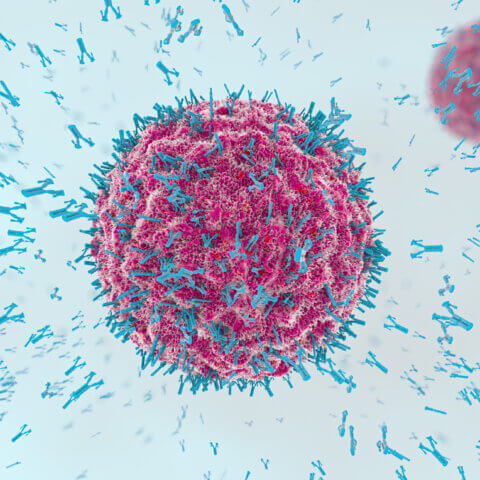Last Updated: December 3, 2024, 11 am UTC
The success of a clinical trial is contingent upon many factors, but the collaboration between contract research organization (CRO) physicians and principal investigators (PIs) is of growing importance in the industry. Choosing the right CRO partner is a pivotal decision for sponsors, just as selecting the right PIs is for CROs. Both choices are essential for ensuring efficient study execution, maintaining data integrity, and meeting key deadlines and budget constraints. The criteria for these decisions have evolved as clinical trials grow in complexity – especially in areas such as personalized medicine, pediatrics, and gene therapies across oncology and rare disease research. It is no longer just about cost or geographic presence but about finding partners who can manage the subtleties of specialized research and drive successful outcomes.
In this blog, we delve into the importance of physician-to-physician connection in the clinical trial setting. Specifically, we examine how the right team of CRO medical directors effectively supports patient screening and recruitment efforts, manages sponsor/PI relationships and communication, and delivers clinical and therapeutic expertise to ensure studies remain on track with high-quality data outputs that are medically consistent and reliable.
A patient-first mindset
“We’ve been on the other side, in the clinic. For us, patients are number one and they will always be number one.”
Recruiting enough patients is often one of the most difficult tasks for clinical trial sites, and inadequate patient enrollment can lead to delayed timelines, increased costs, or even trial failure. CRO physicians bring their medical expertise and operational support to ensure that patient recruitment and screening efforts are efficient, ethical, and aligned with the trial’s goals. This includes:
- Protocol optimization for recruitment. CRO medical directors are often involved in the early stages of protocol development, providing insights into how eligibility criteria and recruitment strategies can impact patient enrollment. By working closely with PIs, they can recommend adjustments to the protocol that strike a balance between scientific rigor and practical recruitment feasibility. This collaboration ensures that the study is more inclusive, broadening the pool of potential participants without compromising the trial’s integrity.
- Leveraging data to identify eligible patients. CRO physicians bring real-world clinical experience in which many of these target patient populations are treated. This drives more informed decision-making about data sources to use in targeting populations that meet the study’s inclusion criteria, such as electronic health records (EHRs), claims data, and registries. PIs are able to focus on a more targeted group of patients, reducing the time spent on screening individuals who may not be eligible.
- Training and education. CRO physicians typically provide training and education to PIs to help bridge the gap between clinical practice and the research setting, particularly around Good Clinical Practice (GCP) procedures. This includes advising site staff on adverse event reporting and strict adherence to the protocol, as well as educating them on the specifics of the study drug.
- Site feasibility. CRO medics are instrumental in conducting site feasibility assessments, where they evaluate local standards of care and weigh any impact on the study’s procedures. They also help to determine whether a particular site has the appropriate technical capabilities and research experience, along with the ability to enroll a sufficient number of patients. Further, CRO physicians bring their “out-of-the-box” thinking to improve the issue of disparity in clinical trial opportunities in rural communities, for example, who may not otherwise have access to these potentially life-saving therapies. This is a prominent area of focus, especially in the field of oncology.
- Pre-screening support. CRO physicians assist in pre-screening activities, helping to ensure that only those patients who meet the core inclusion/exclusion criteria go through full screening, saving time and resources.
- Consistent data review. When it comes to multi-center trials, protocol deviations can lead to heterogeneity in trial data. CRO medics are critical for providing a harmonized approach to managing medical issues across sites, reducing variability in the results.1
Building relationships that last
“We have a constant flow of communication with PIs where, in case questions come up or issues need to be resolved, they know that there is a level of trust between us. They can always hop on the phone with us and know we’ll take care of it.”
Effective relationship management and clear, open communication are fundamental to the success of any CRO-sponsor-PI partnership. CRO physicians align all parties with the trial’s overarching goals as intermediaries between sponsors and investigative sites. Their ability to foster transparent, consistent communication is often the difference between smooth progress and significant delays in the clinical trial process.
A 2023 survey found that nearly 70 percent of sponsors identified communication breakdowns as the leading cause of trial delays. Regular touchpoints, comprehensive progress reports, and clearly defined communication protocols help swiftly address challenges, reducing confusion and keeping trials on track.2 Strong communication also mitigates risks by ensuring all stakeholders – sponsors, PIs, and investigative sites – remain well-informed about trial developments, protocol changes, and regulatory updates.
Importantly, medical directors serve as leaders and mentors, supporting and motivating PIs to ensure trial objectives align with patient needs. This dual role is crucial for maintaining strong patient recruitment and engagement throughout the trial.
Experience has demonstrated that each successful PI-CRO relationship is built on trust and strong relationships. Active participation in investigator meetings is necessary. The bond between CRO physician and PI can and should include the exchange of personal email addresses and cell phone numbers. This personal touch enables real-time communication, allowing for swift resolution of issues and minimizing trial delays.
Clinical and therapeutic expertise: Digging deeper into the disease
“When we’re reviewing a new study, we first look at the target population in terms of disease type, clinical stage as well as age/gender considerations, understanding where higher incidences of the disease are located, and begin mapping ideal sites to capture those specific patients.”
A CRO’s therapeutic expertise is critical in determining clinical trial success. Sponsors and PIs should prioritize CROs and medical affairs teams with in-depth knowledge of the investigated therapeutic area. In specialized fields like oncology, gene therapy, or rare diseases where patient retention and protocol adherence are particularly challenging, a nuanced understanding of inherent complexities can streamline trial progression and improve outcomes.
An industry analysis found that sponsors who partnered with CROs with specialized therapeutic knowledge achieved a 25 percent faster trial completion rate.3 Additionally, these trials saw a 15 percent improvement in patient retention compared to trials managed by generalist CROs.2 This is especially important when patient populations are scarce, as seen in rare disease trials, where meeting enrollment targets can be challenging.
Speaking the same medical language
Selecting the right CRO partner with compelling medical affairs proficiency is a key ingredient to the success of your clinical trial. Premier’s medical directors are experienced clinicians and former PIs who are experienced in running clinical trials. They speak the same language as investigators, leveraging firsthand knowledge to anticipate and address their needs. Building a strong peer-to-peer relationship is crucial, and our comprehensive understanding of the clinical trial process, from bench to bedside, enables us to support them throughout the study.
___
At Premier Research, our expert medical directors and tailored solutions provide a seamless, efficient path to positive trial outcomes. Contact us today to learn how we can support your needs and drive better outcomes.
[1] Heterogeneity in multicentre trial participating centers: lessons from the TOPCAT trial on interpreting trial data for clinical practice. Mercuri, Mathew et al. Journal of Clinical Epidemiology, Volume 153, 78 – 82
[2] McKinsey & Company. (2023). Transforming the future of clinical trials through technology and collaboration. McKinsey & Company.
[3] Boston Consulting Group. (n.d.). The clinical trial of the future: Decentralized and patient-centric.

 Webinar
Webinar 


 Perspectives Blog
Perspectives Blog 